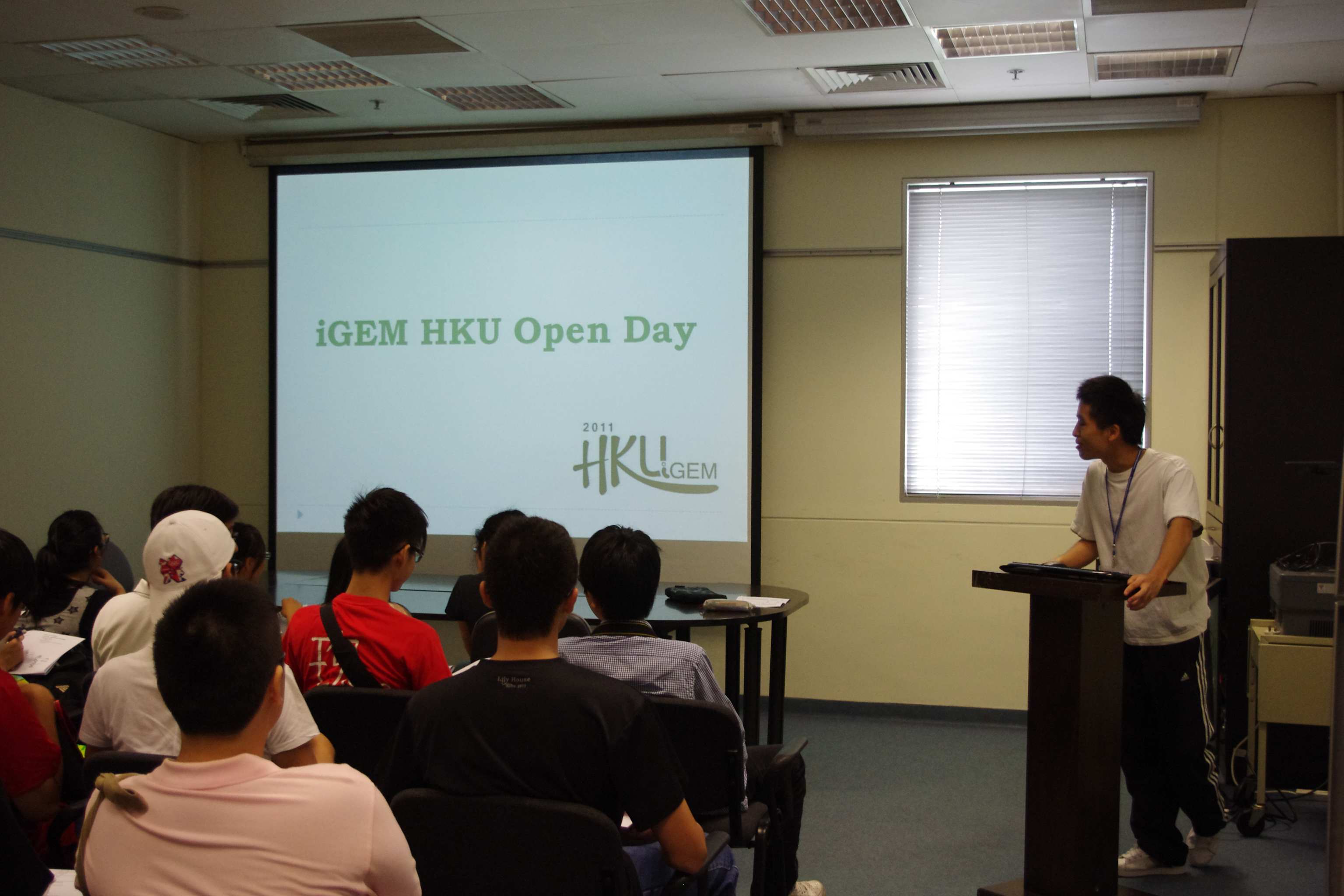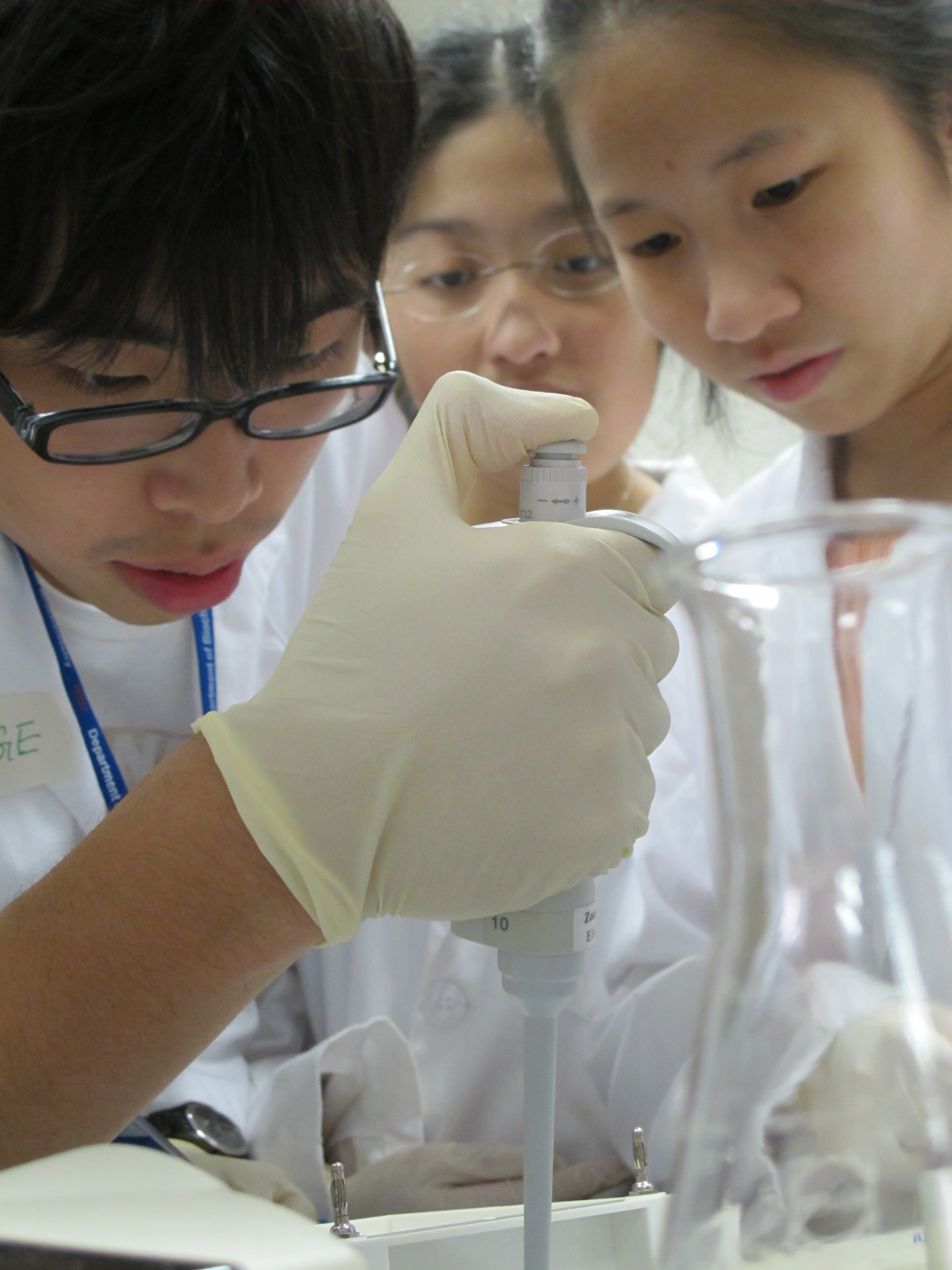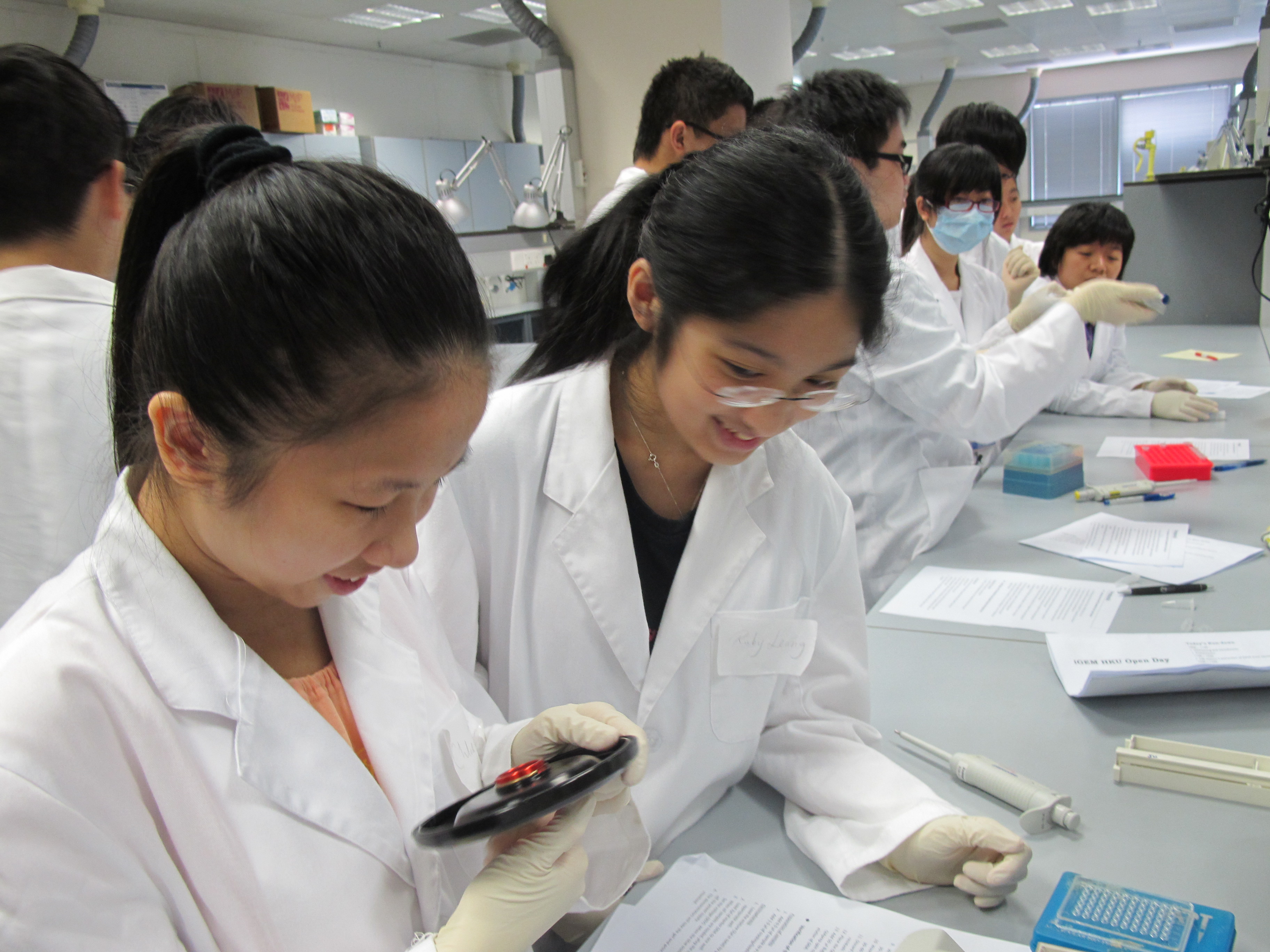Team:HKU-Hong Kong/Human Practice
From 2011.igem.org
| Line 127: | Line 127: | ||
|} | |} | ||
{| style="width:900px;background:#000000;text-align:justify;font-family: georgia, helvetica, arial, sans-serif;color:#ffffff;margin-top:25px;" cellspacing="20" | {| style="width:900px;background:#000000;text-align:justify;font-family: georgia, helvetica, arial, sans-serif;color:#ffffff;margin-top:25px;" cellspacing="20" | ||
| + | |||
<div ALIGN=CENTER> | <div ALIGN=CENTER> | ||
{| style="width:254px;background:#99EE63;text-align:center;font-family: georgia, helvetica, arial, sans-serif;color:#000000;margin- top:5px;padding: 2px;" cellspacing="5"; | {| style="width:254px;background:#99EE63;text-align:center;font-family: georgia, helvetica, arial, sans-serif;color:#000000;margin- top:5px;padding: 2px;" cellspacing="5"; | ||
Revision as of 16:57, 4 October 2011
| Human Practice |
| Overview |
|
Hong Kong is generally regarded as a city for business and banking; science appeals less well to the general public despite the presence of internationally well-regarded tertiary institution. Elsewhere, biotechnology in HK remains in its infancy and synthetic biology has barely been heard of. Under this context we decided to organize two initiatives – a HKU iGEM Open Day and a school workshop, with the following objectives: 1. Introduce synthetic biology to secondary school students. 2. Introduce the iGEM competition and the HKU iGEM team to secondary school students. 3. Provide lab sessions for the participants so they can have first-hand experience on some common molecular biology lab techniques 4. Raise participants’ interest in the biosciences 5. Provide a platform for participants to know more about undergraduate science in HKU |
| Open Day |
| School Workshop |
|
The HKU 2011 iGEM Open Day was held on 24th September, 2011 with help and support from the HKU School of Biological Sciences. The Open Day was a whole day event coordinated and led by members of the iGEM team. We were able to invite a total of 34 Form 5 – 6 secondary school students from three schools to participate. There were two parts to the Open Day. First, we gave a presentation. The presentation covered iGEM, our Super-Silencer project, biobricks and a brief overview of synthetic biology. Also, we dedicated a portion of the presentation to review the basics of molecular biology since a number of participants have not learnt about them yet in school. Towards the end, we also introduced the background and necessity of two lab techniques: plasmid extraction and agarose gel electrophoresis, to which students are required to carry out in the consequent lab session. The second part were two lab sessions: plasmid extraction and agarose gel electrophoresis. Students were split into groups of five/six, and each group was required to extract two plasmids from cell cultures provided by us: (i) the pEGFP plasmid, which houses the GFP gene that is essential to quantitative analysis in our project; and (ii), the pROT plasmid, which contains the fusion protein H-NS::tetR gene. After a ‘live’ demonstration by George, students were assigned time to practice using pipettes before carrying out the extraction based on lab protocols provided to them. Of course, each group were monitored by an iGEM member who further explained the rationale behind each step. The extracted plasmids were then visualized using agarose gel electrophoresis. Due to time concerns, we prepared the gel beforehand. Students however, were asked to mix the sample with loader dye before unloading it into the wells. As gel electrophoresis was being carried out, students were given a chance to observe pEGFP E.coli under a UV transilluminator. Finally, each group got back the gel photo and we explained to them how to interpret the results. Although some groups were unable to extract plasmid DNA well, we felt the students still learnt a lot since none of them has ever come across these lab techniques throughout their high school years. After a day of work (and laughter) we concluded the Open Day by presenting students with certificates, souvenirs and photo-taking. Based on the feedback forms, it is fair to say that the Open Day was a relative success and achieved most of its objectives (see above). Most of the students showed good initiative to learn and had fun in doing the labs in particular. |
| Participants feedback |
|
1. I have learnt more about synthetic and molecular biology. Disagree (0) Neutral (3%) agree (97%) 2. I have learnt more about basic lab techniques. Disagree (0) Neutral (3%) Agree (97%) 3. I have learnt more about HKU science and HKU life in general. Disagree (0) Neutral (33%) Agree (67%) 4. The demonstrators today have been helpful and knowledgeable. Disagree (0) neutral (0) Agree (100%) 5. The arrangements of this Open Day are good. Disagree (0) Neutral (33%) Agree (67%) 6. I enjoy this Open Day. Disagree (0) neutral (3%) Agree (97%) |
| What activites did you enjoy most? |
|
"The experiment part is quite interesting. I’ve learned much in this Open day.” “I enjoyed the lab session very much. I can use the more advanced lab apparatus.” “Getting together with the HKU students is enjoyable too.” “Chatting with the demonstrators help me gain more information about HKU science and the university life.” “Performing the gel electrophoresis is enjoyable.” |
| What activites did you not enjoy? |
|
“Wait for too long during the experiments.” “I don’t really enjoy the part involved advanced bioscience knowledge.” Can there be any improvements? Please write them down. “The grouping can be smaller.” “Explain more about what is the purpose of each step of the experiment.” “Should include more activities that students can do on their own.” |
| Additional Comments |
|
“All the helpers are very nice and they are able to tell me about the rationale behind the research.” “Nice day for me! A meaningful experience for both knowledge and fun!” “Better if there will be more experiments and interactive activities.” |
| School Workshop |
| Reflections |
|
The two events enabled us to present our project as well as knowledge about synthetic biology to participants. It was a meaningful task both in the view of participants and our iGEM team. In the Open Day, the participants showed strong sense of team work and excellent performance. We were impressed by their enthusiasm in learning and eagerness to try different advanced techniques. Through these hand-on experiments, we demonstrated our daily work to them and let them know more about our project. We are glad that the students enjoyed the lab session very much and their willingness to know more about synthetic biology and our project encouraged us a lot. Most of the participants reflected that the Open Day was a knowledgeable and enjoyable event. As for us, we think that organising the event was a precious opportunity to enrich and educate ourselves too. We need to have a thorough understanding of the techniques involved and it was also a good opportunity to review our project and knowledge about synthetic biology. In the school workshop, we switched our focus from the iGEM project to the application of synthetic biology. Holding the school workshop, in fact, was a challenging task for us as some of the students were from physics and chemistry stream instead of biology stream. Given their lack of biological knowledge, we had to make sure that our presentation was simple and clear to get the message across. This was not an easy task! Such an experience made us realise the importance and challenges of clear communication between scientists and the general ‘public’. We hoped to convey the message that synthetic biology is not a pure academic subject: it is one that will find applications in daily life. In addition to developing the interest of the students, we reminded them to notice more about the topic since the prospective uses of synthetic biology applied to every corner of our life like environmental aspect, medical aspect as well as food and safety, etc. Although synthetic biology is still in its infancy, we see the potential development of it. Our team thinks that the standardization of the biobricks may help its development in the commercial way. That is, with suitable marketing, the biobricks can be packaged into commercial products which are available for the researchers ordering. Hence, we added a ‘marketing’ part in the workshop to provide a platform for the students to think about the future possibility of development. The most impressive part of the school workshop was that, the participants showed great creativity. They introduced wonderful ideas about the application of synthetic biology. Moreover, inspired by the power of internet social network, we have launched a fanpage of our HKU 2011 iGEM team on Facebook. In the fanpage, visitors can trace our newest move and working progress. Also, we have posted the abstract of our project as well as some information about synthetic biology on it. We would like our visitors to gain some insight on the topic simply by browsing the Facebook page. Besides, we do think Facebook fanpage creates a convenient platform for the interested to express their idea and criticism. Last but not least, we have included some photos of the event held. The fanpage recorded every bits of joy and precious moment of our team. |
 "
"






